Are Pastors Doctors?
By Tyler Huson
This past term at SUM I taught a course on the Pentateuch and of course Leviticus was not among the most exciting material of the Pentateuch for many students! It’s often viewed as one of the more boring reads of the Bible! I like to tell my students that reading Leviticus is like reading receipts, it is very technical and not always as engaging or dramatic as some of the other stories in the Pentateuch, but the words in this book reveal a lot! Some examples of passages in Leviticus include laws and norms on sacrificial system, cleanliness and hygiene, dietary laws, tattoos, etc. while these are very technical passage, they are helpful in understanding the world of the Bible! Considering the panic we are in due to the spread of the Coronavirus, there are some valuable lessons we can learn from this book! The Book of Leviticus offers timely advice to pastors and Christian leaders still today.
Lesson 1: See yourself as a doctor
Now don’t start thinking you can give medical advice and charge people a lot of money just to ask you a few questions, you are not that kind of doctor! As a pastor, you are the original kind of doctor, you are a teacher of the Word of God. As a matter of fact, we get the word “doctor” from the Latin word for teacher. Mirriam-Webster says,
The English language history of doctor starts in the early 14th century, when the word was first applied to a select few who likely knew neither bloodwork nor basketwork. They were equipped for dealing with matters of the soul: they were eminent theologians who had a special seal of approval from the Roman Catholic Church as people able to talk about and explain the doctrines of the Church. They were teachers of a kind, and the word’s origin makes this connection. The word doctor comes from the Latin word for “teacher,” itself from docēre, meaning “to teach.”
As a doctor, you can consider your teachings to be a prescription for those who listen to you, and hopefully your teachings are in the best interest of God’s people. The priests in the book of Leviticus were charged with the very important task to teach, specifically all the decrees the LORD gave through Moses!
8 Then the Lord said to Aaron, 9 “You and your sons are not to drink wine or other fermented drink whenever you go into the tent of meeting, or you will die. This is a lasting ordinance for the generations to come, 10 so that you can distinguish between the holy and the common, between the unclean and the clean, 11 and so you can teach the Israelites all the decrees the Lord has given them through Moses.” Lev. 10:10-11 (NIV)
The verses above describe the role of the priests as teachers and the following chapters detail the laws and what the priests are to teach the Israelites. These words instruct priests to be sober in order to do what God calls them to do, which is to teach Israel and guide them into holy living. These laws will go on to teach the Israelites what is clean and unclean. Marvin A. Sweeney writes, “The priesthood plays a key role in preparing Israel for its holy role, and Israel in turn will act as priests in instructing the rest of the world as well.” The command to be sober shows how much responsibility is required and how important the teachings are, today’s situation is serious so approach it in a sober way!
Pastors and Christian leaders should consider the weight of their words as being the words of a doctor. Take your teachings seriously! If you were a doctor, would you want to give your patient a bad treatment? Of course not! So be sure to treat your words in a similar fashion, because they are powerful! Is this advice only for pastors and leaders? Well, if Israel was to be a kingdom of priests then perhaps the church should be a kingdom of pastors, so as a good Christian, use your words for good and influence people towards good and healthy living! Be mindful of the health of others!
Lesson 2: Prioritize Health and Cleanliness
The Book of Leviticus repeats the concepts of clean and unclean time and time again. One of the roles of the priests in Leviticus was to label people and animals as either clean or unclean, this was for the health and safety of the community. Leviticus 13 says,
21 But if the priest looks at it, and behold, there are no white hairs in it and it is not lower than the skin and is faded, then the priest shall isolate him for seven days; 22 and if it spreads farther on the skin, then the priest shall pronounce him unclean; it is an infection… (NASB)
The idea here is to protect the community from infection and death. Sweeney writes, “the operative principle is that the living fluids of the body are discharged and die, resulting in contact with death.” The book of Leviticus associates clean and unclean with life and death and people or things that have contact with death become unclean and can be/should be treated and/or isolated.
During the Coronavirus season, consider using this sage advice from Leviticus to isolate and quarantine those things that can lead to death, even yourselves. At this point society is encouraged to consider each person as infected with the Coronavirus so I encourage you to err on the side of caution, just like a doctor would, and take seriously the efforts to isolate this plague from spreading into your community.
Conclusion
In conclusion, remember to take seriously your role as doctor and use your words and teachings (prescriptions) responsibly and as seriously as if you were a medical doctor. Prioritize cleanliness and though it may feel dry and boring like the book of Leviticus, it will save lives in your community. So, during the coronavirus season, recognize your doctoral role in Christ and prescribe your followers to act wisely and judiciously. Lead your community to take their physical health seriously! As a doctor, you can become liable for a bad treatment, so take your words and advice to be just as serious!
While we Pentecostals might be tempted to pick up the proverbial snake in faith because that is more exciting and adventurous and we know that the just shall live by faith and it takes faith to please God, there are times we should take faith in the boring Levitical approach and be doctoral and consider the health of our community, and consider that we as Christians represent God to the world, so be wise!




 Photo by Felipe Salgado on Unsplash
Photo by Felipe Salgado on Unsplash